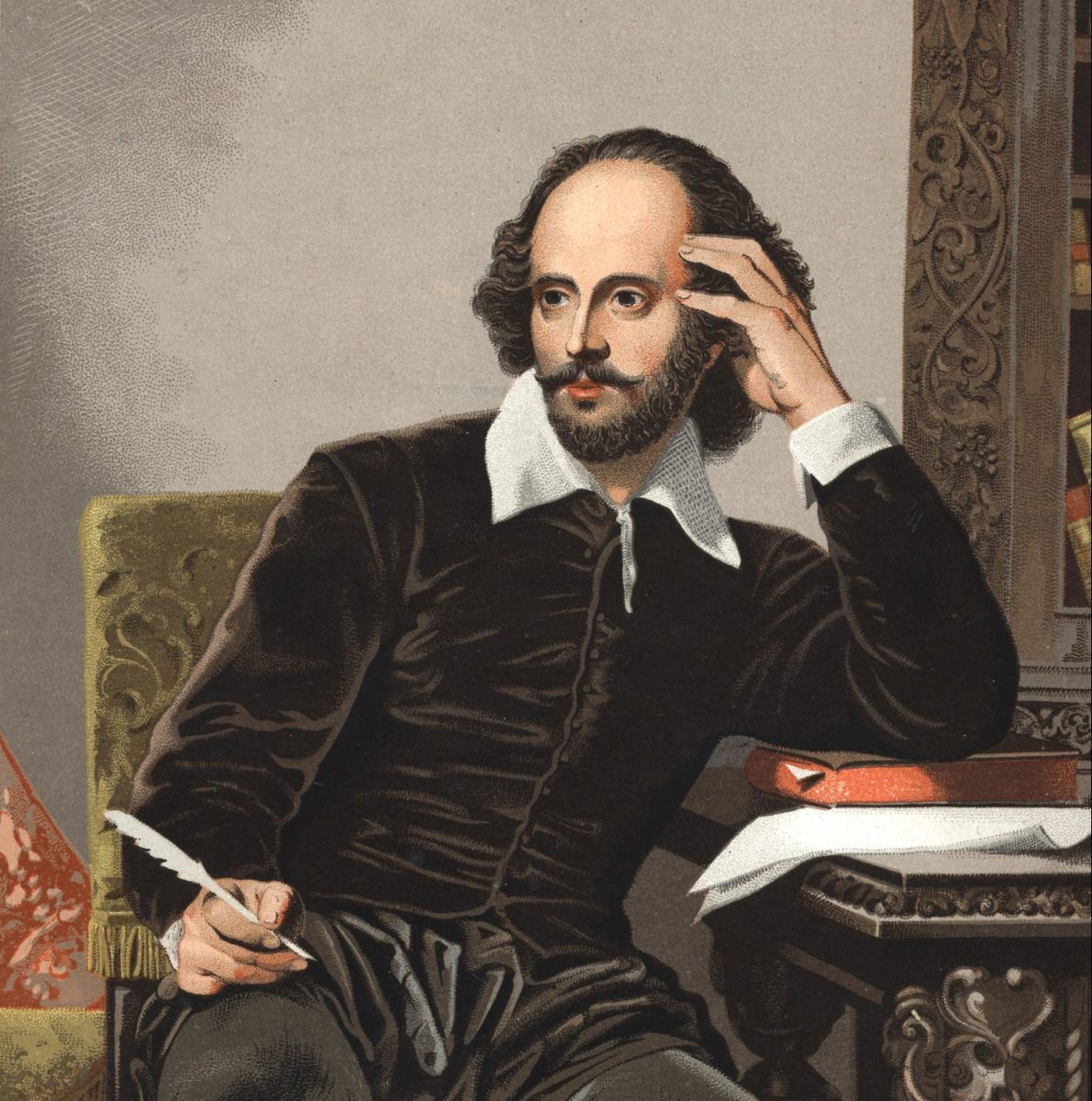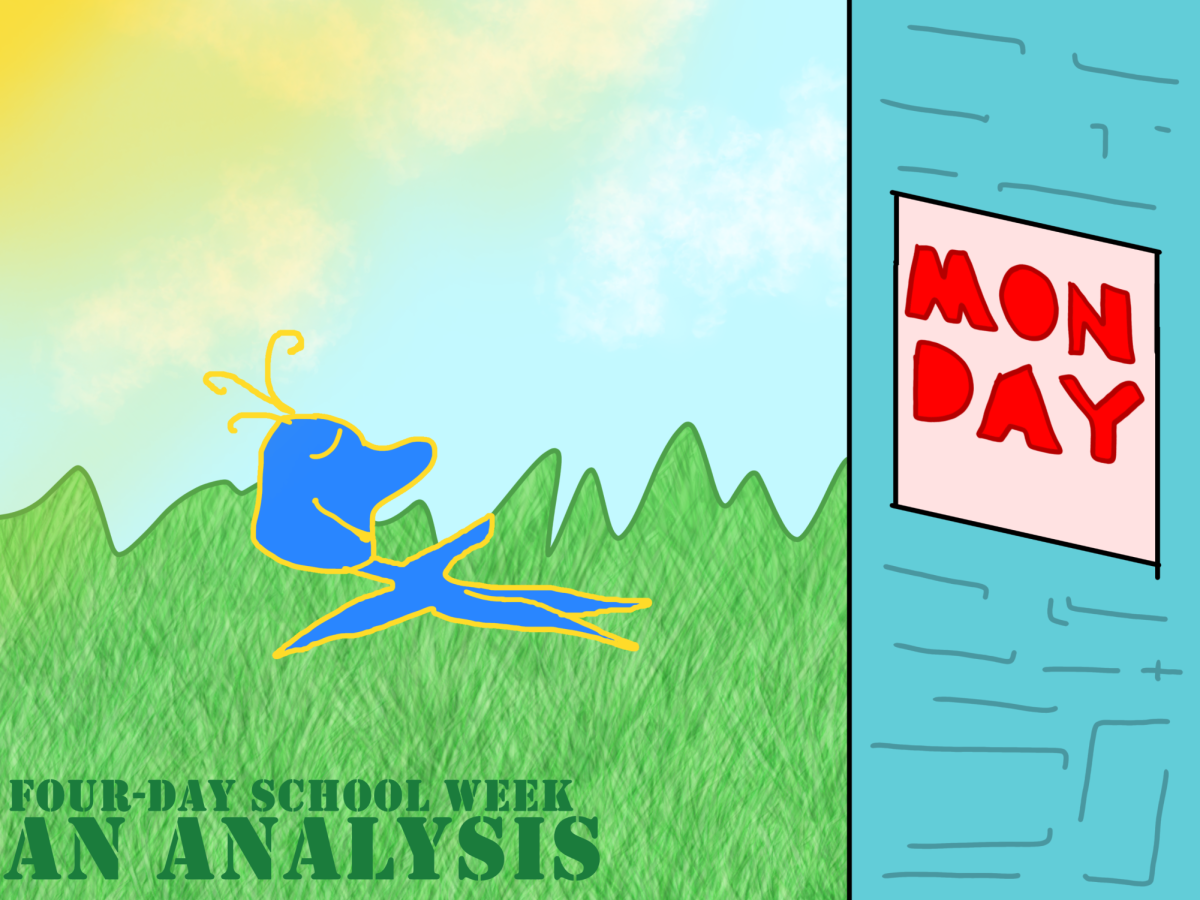We’ve all heard of him. He’s on your English syllabus and in the library. You can’t escape him. ‘Shakespeare’ is a name that, for many students, conjures up harrowing memories of being in freshman English class, listening to unintelligible monologues, and blundering through an era of history too distant to truly understand. While Shakespeare is a product of his time, there is a reason that scholars, writers, and even your English teachers keep studying him. His works are, at their best, something every teenager can delight in – and maybe even find meaningful.
Shakespeare is no stranger to low-brow humor. Any teenager can appreciate his willingness to display the regular happenings of London – good, bad, and ugly. One of the best examples of this is in the Taming of the Shrew, a play in which Katharine, an aggressive woman deemed unfit for love, is courted and “tamed” by Petruchio. When the two first meet, Petruchio calls Katharine a “wasp”; she tells him to “beware her sting” and leave. He suggests plucking out her stinger, but the metaphor goes far beyond its initial purpose:
PETRUCHIO: My remedy then is to pluck it out.
KATHARINE: Ay, if the fool could find it where it lies.
PETRUCHIO: Who knows not where a wasp does wear his sting? In his tail.
KATHERINE: In his tongue.
PETRUCHIO: Whose tongue?
KATHERINE: Yours, if you talk of tales, and so farewell.
PETRUCHIO: What, with my tongue in your tail?
Nay, come again, good Kate. I am a gentleman—
In the staged performance of this comedy about shrewish Kate and her suitor Petruchio, the actors usually engage in a physical skirmish, mirroring their war of wits. In one Globe Theater performance of this scene, the actors flop around on the floor, pick each other up, and accidentally fix themselves in positions that can’t be elaborated on in a school newspaper. His bawdy humor goes to show that Shakespeare not only resisted elitism, he reveled in the ways of the common man.
Many Elizabethan plays are grossly misogynistic, and it rightly turns people away. Women weren’t even allowed to represent themselves on the stage, men did that for them. However, Shakespeare made many of his female characters intelligent, assertive, strong-willed, and perceptive, molding their sexist archetypes into multifaceted human beings. Rosalind from the comedy As You Like It, for example, takes full control of the stage and her love life. She, disguised as a man in the Forest of Arden for safety, sees her crush, Orlando, who has attached love poems on the trees for her. She then suggests, “I would cure you, if you would but call me Rosalind and come every day to my cote and woo me.” She’s essentially saying, ‘I’m not Rosalind, but you can pretend that I’m Rosalind and flirt with me’ so that she can test his skill in the romance department before committing to anything. If that isn’t a stroke of genius, I don’t know what is. In many Shakespearean works, characters like Rosalind boldly unfetter themselves from gender norms and invite us to do the same.
Humor and feminist ideology are not the only things that seem strikingly contemporary in Shakespeare’s works. His tragedies are full of ethical dilemmas, much like our modern world. Macbeth famously said, “O, full of scorpions is my mind, dear wife.” Similar to Macbeth, the human race has more power to destroy than ever before, and yet we are too powerless to keep from destroying ourselves. The constant information overload makes it feel like the world is on fire (and it is, literally), leaving us with more questions than answers. Shakespeare’s troubled protagonists never shy away from the questions that besiege us every day, and they articulate them much better than we can. Take, for instance, Macbeth’s comments on time: “Life’s but a walking shadow, a poor player, that struts and frets his hour upon the stage, and then is heard no more. It is a tale told by an idiot, full of sound and fury, signifying nothing.” His comments are evocative of a cosmic apathy, a nihilistic hopelessness. It sounds like living through a screen or surviving a pandemic. It sounds like our lives, and yet it was written four hundred years ago.
That ability to freeze a single moment in time and simultaneously stay relevant to future generations is exactly what makes the Bard – or any great writer – truly exceptional. Literature from the past can unite us in unforeseen ways and ultimately teach us more about ourselves. There is no grade or test score that qualifies you to read Shakespeare; the only prerequisite is that you feel. So, the next time you find yourself looking for a book to read, consider a work of Will’s. It might not be easy, but I guarantee that the piece will be as complex, inspiring, and as special as you are.













